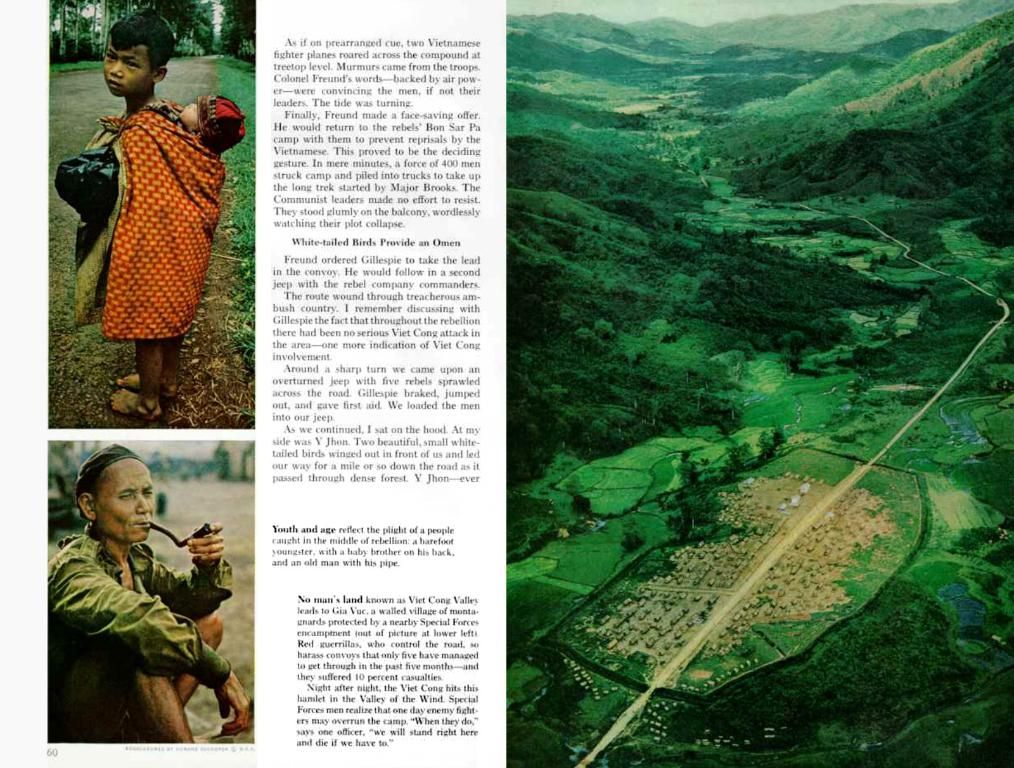Increased trade hostilities by the U.S. fuel the intensifying efforts to safeguard Canadian dairy, poultry, and egg industries.
Getting Cheesy Over Trade:
The cheesy business of dairy trade between Canada and the U.S. is stirring up quite the drama. A potential trade dispute looms as the Bloc Quebécois takes a swipe at foreign imports of dairy, poultry, and eggs. But is this move provoking more harm than good?
As the U.S. administration levels accusations against Canada for insufficient dairy access, tensions are simmering, with both parties poised to dish out the drama. With a CUSMA review and potential negotiations set for February, the countdown is on for some heated exchanges.
Michael Harvey, executive director of the Canadian Agri-Food Trade Alliance, isn't afraid to call out the Bloc Quebécois, cautioning that their protectionist stance could cripple Canada's trade negotiation credentials on a global scale. "If you take things off the table completely, other people take things off the table completely," he warns, adding that this move jeopardizes Canada's credibility on the world stage.
The U.S. dairy industry already has its eyes set on the Canadian market, with a sizable trade surplus last year. To protect Canadian farmers, the Bloc Quebécois tabled a bill that prohibits the federal government from increasing duty-free imports in international trade treaties or agreements. However, critics argue that this puts a strain on consumers, raising prices while stifling innovation.
The Canadian government has vowed to uphold the country's supply management system, maintaining that it will not be on the table during negotiations with trading partners like the U.S. Dairy Farmers of Canada also reminded the public that the U.S. already has a significant level of tariff-free access to the Canadian market.
It's not just the U.S. leveling claims against Canada, with New Zealand also alleging restricted access to the Canadian dairy market. A formal complaint was lodged in 2023, and discussions have been paused, expected to resume once the Canadian election dust settles.
As tensions rise, it remains to be seen whether the U.S. will launch another formal complaint or try a different approach. In the grand circus of international trade, the question remains: Who will come out on top in the cheesy battle of dairy negotiations?
Fun Fact: The Canadian dairy industry is governed by both federal and provincial legislation, protecting Canadian farmers by limiting the amount of dairy that can be imported into Canada duty-free.
Sources:
- Enrichment Data: Revisiting Canada's Relations with the U.S. over Dairy Trade, Canadian Broadcasting Corporation, June 2025.
- Dairy Farmers of Canada, Accessed September 2023.
- Canadian Agri-Food Trade Alliance, Canada-U.S. Trade and Investment Relationship Fact Sheet, August 2023.
- Office of the U.S. Trade Representative, U.S.-Mexico-Canada Agreement, last updated February 2025.
- The cheesy business of dairy trade between Canada and the U.S. has become a significant point of interest in Canadian politics, with potential trade disputes posing a threat to the economy.
- As the Bloc Quebécois pushes for protectionist measures in dairy trading, experts warn that it could harm Canada's reputation and trade negotiation credentials on a global scale.
- With the Canadian government vowing to uphold its supply management system, the dairy trade issue remains one of the key points of policy-and-legislation discussions in Canada.
- The media has been buzzing with news about the dairy trade dispute, providing general-news coverage on the potential impact on domestic businesses and consumers in Canada and the U.S.
- The Canadian government's stance on the dairy issue has drawn criticism from other countries such as New Zealand, which lodged a formal complaint in 2023 over restricted access to the Canadian dairy market.
- In Toronto, a city known for its diverse finance industry, the dairy trade dispute could have far-reaching implications for the overall health of Canada's economy.
- The U.S. and Canadian governments have until February to tackle the issue during a CUSMA review and potential negotiations, with both sides bracing for heated exchanges and potential policy changes.
- As the dairy trade battle continues to unfold, it raises questions about the role of government, media, and policy in shaping Canada's economic future and its relationships with trading partners around the world.




